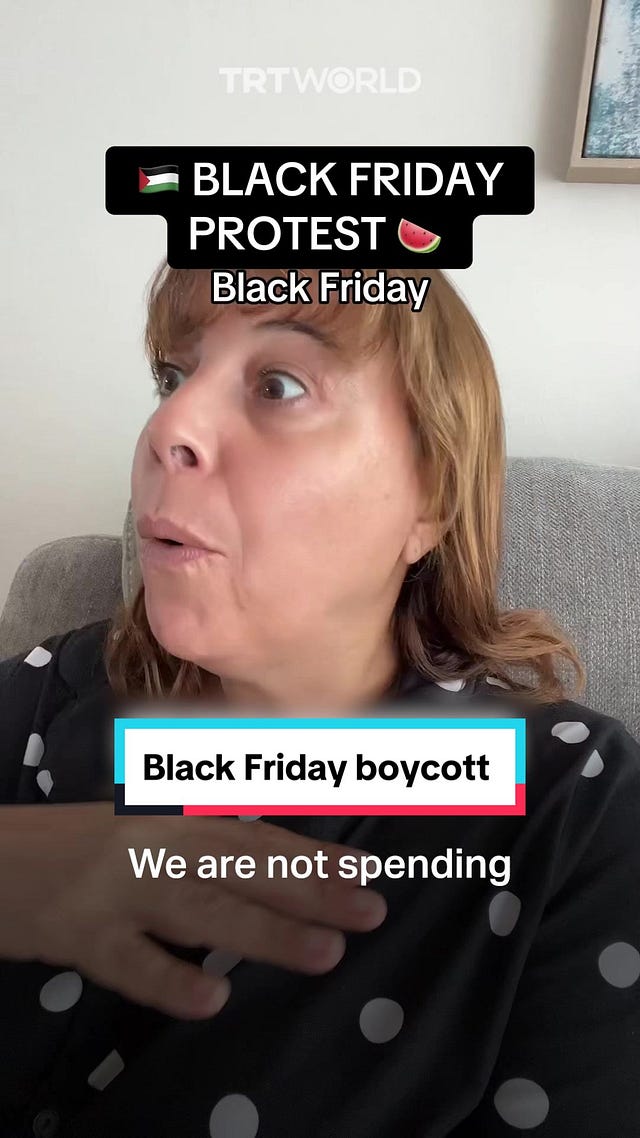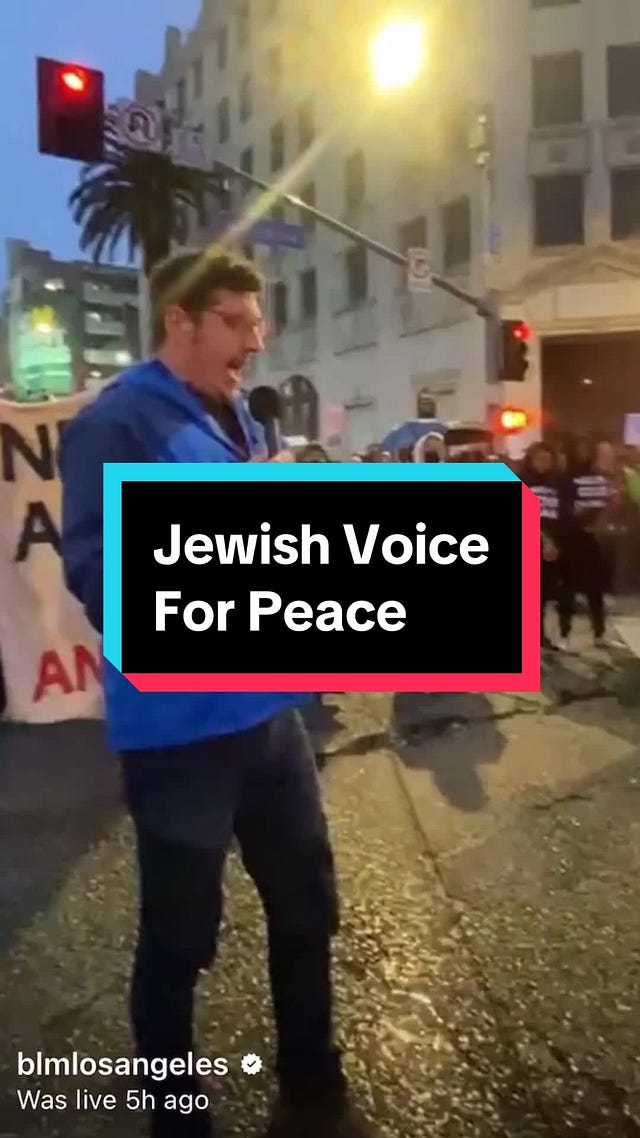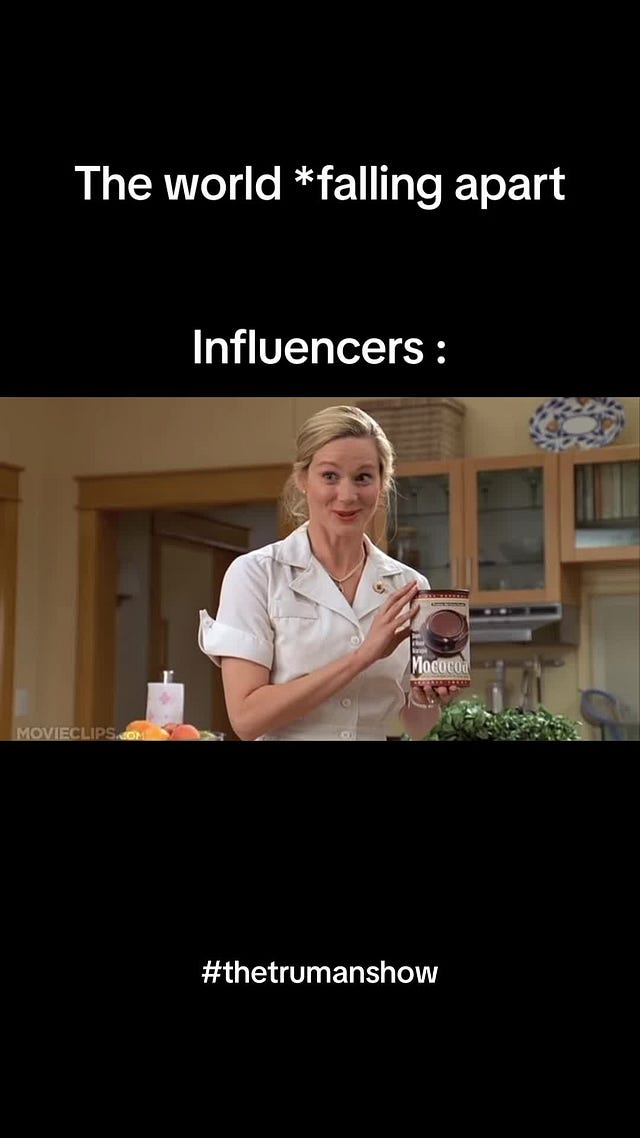Black Friday was a bust this year. Most are blaming the fact that the job market is not secure and people are holding out for bigger discounts. It must be stated though that there was a huge campaign on TikTok to boycott Black Friday in response to the violence in Gaza.
Whether this campaign played a role is not the point. The more interesting development is, unlike the deinfluencers analysed in this Vox article, who are focused on influencing you to not buy specific items, these anti-influencers are far beyond the language of bargains and ripoffs. They are telling you to stop buying things for a larger cause that they believe in.
But even this is not enough of a reason to call them anti-influencers. The primary reason is all of these TikTok creators are willing to burn bridges with any current or future sponsorship deals.
The comedian in the TikTok clip above, during a speech at a Hollywood march, readily acknowledges that he will never get work in Hollywood after this. I did stand-up comedy for 14 years. During none of those years would I have ever considered foregoing any relationship with TV and film, no matter how much I was struggling and unlikely to make it. And I was — and am — an Arab leftist.
The comedian above (Matt Lieb) is not the only one. There is also Alexander Pearlman , Connor Boyd — and those are just the ones that have viral videos that are entertaining. There are so many more that are not seeking fame so much as they consider themselves soldiers in an information war with the mainstream media. This is not just about the narrative on Israel or Netanyahu by the way. These anti-influencers are not only telling viewers to sit out Black Friday, but also the 2024 election. All pro-Biden “most important election” propaganda is drawing glares and eye rolls.
A couple of Substacks indirectly pointed the way the wind has been blowing this past year. Realism Confidence praised Quebec filmmaker Xavier Dolan for quitting film making in the current climate, then went on to point out how making art in this apocalyptic climate (this was published July 14, months before the violence in Gaza) is nothing but narcissistic. The Trend Report noticed how TikTok, unlike YouTube and Instagram, seems to be more focused on ideas, conversations, themes, movements, than it does on influencers or stars of any sort.
Another reason for the rise of the anti-influencer: the backlash against actual influencers. Especially the “bland influencer cadence.”
The popularity of these videos is a key indicator of how exhausted many of us have grown with influencers. People are tired of watching successful creators who, having transcended the niche that initially attracted their following, no longer have anything to say or show us. This trajectory isn’t inevitable, but we are over-saturated with out-of-touch influencers, and that’s why Toryanski’s videos are so satisfying.
There it is: out-of-touch. Maybe I’m a jaded Gen Xer, but this TikTok did a better job showing how out-of-touch influencers seem now.
 Tiktok failed to load.
Tiktok failed to load.Enable 3rd party cookies or use another browser
Now let’s be fair. It’s not like all content creators critical of Israel have no sponsorship deals. The Adam Friedland Show Podcast has deals with Bluechew and Draft Kings. They also have a strong enough subscriber base on Patreon that, doomsday scenario happens, they can live off them.
Fighting in an information war can be exhausting, especially when demand is high. The paid subscriber model is the only economic route I see for anti-influencers that don’t want to work for free until there is peace in Gaza.
My last post was about how Gen Z is bringing back the ‘90s, Gen X emphasis on free speech. Another retro principle that is back in a big fucking way: integrity. From the ‘00s indie rock apologists, that said that indie bands needed to put their songs in commercials to make money, to the pre-10/7 influencers that literally could not comprehend the meaning of the term “sell out,” the stigma of selling yourself for money was a Gen X grandpa thing. Well, it seems like there has been a 30 year mass media pop culture cycle of skepticism with mass media and pop culture. In the ‘30s, academics feared that radio would turn into a Hitler factory. In the ‘60s, hippies had a counter-narrative for everything they heard on the news. In the ‘90s, the youth threatened to build an alternative nation of music and film until the suits wrote blank checks to anyone in Seattle or Sundance.
Either the anti-influencers maintain their integrity while mainstream media consistently shrugs off their values, or the mainstream media yet again goes through a major realignment like it did in the ‘90s and ‘60s. Place your bets.







“Satan is a great electrical engineer ...” - MM
I have to wonder if being an anti-influencer is less about integrity vs. wanting to be a new type of influencer. The Trend Report piece you linked cites Charli D'Amelio as an example of how non-influential TikTok's so-called influencers are in terms of actually having a committed fanbase. If that is the case, then it makes sense that fewer and fewer would want to follow in her and her ilk's footsteps. Yes, you may make a lot of money, but you'll also be intensely hated, your every move scrutinized, and you'll quickly be washed up but also too famous to ever live normally again.
With Hollywood, it's also at a severe low point with the Oscars more of a joke than ever and once invincible studios like Disney having historically catastrophic years. And that's before we get into all the sexual crime stuff. You said that in your 14 years of doing stand-up, you never would've risked getting blacklisted. But Hollywood also meant something more in the past and there weren't as many alternatives.
I'm thinking of that little wave of IG influencers about 5ish years ago that all said they were walking away from how fake the influencer lifestyle was. But it seemed more like a brand reset at the time because the whole IG influencer aesthetic was getting stale. In the end, the relentless pursuit of online popularity did not change. Only the method did.